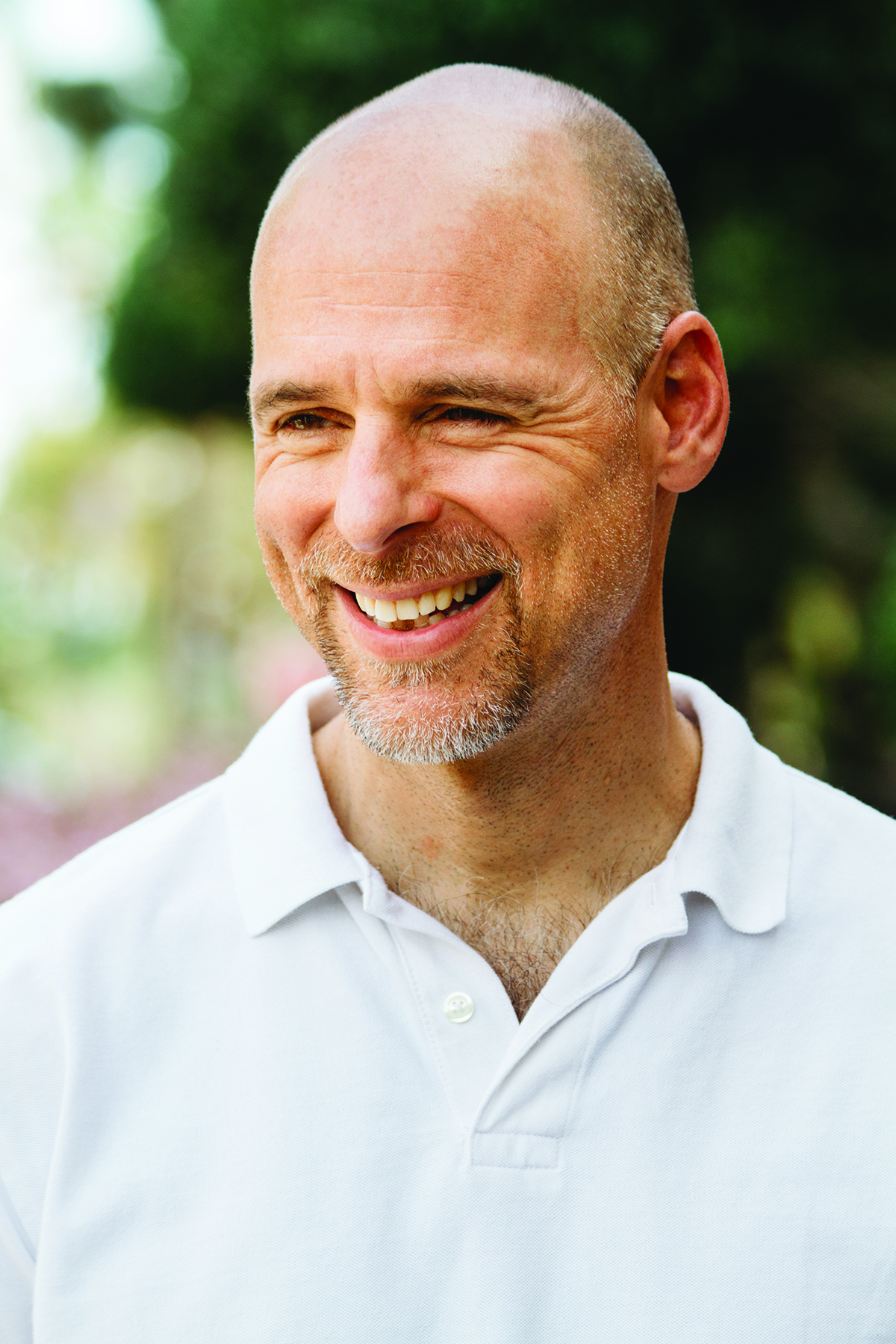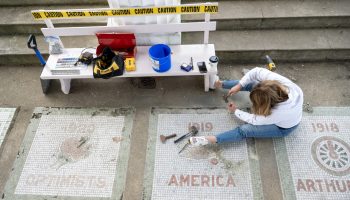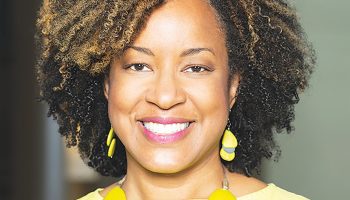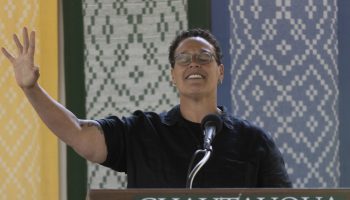Community has to be cultivated. Bart Campolo learned that after leaving Christianity — and now he teaches it to young secular people.
Campolo, the humanist chaplain at the University of Southern California, will talk about how he builds communities and why they are important during his lecture, “Cultivating Friendship and Community in an Age of Anxiety,” at 2 p.m. Friday in the Hall of Philosophy. The talk will conclude Week Seven’s theme, “Spirituality in an Age of Anxiety.”
“You want a sense of belonging,” Campolo said. “You want to know ‘Who are my people, where’s my tribe? What am I a part of?’ ”
In his work at USC, Campolo said he has met with many students — some of the best and brightest on campus at an already top-notch school — who encapsulate the age of anxiety that Chautauquans have been discussing this week. They can network and they appear successful, but they are full of anxiety and don’t know how to connect on a deeper level, he said.

What these students are truly searching for, Campolo said, is a deeper meaning of life. They may have hundreds of Facebook friends, but those relationships aren’t filling their need for purpose.
Campolo said he has tried to give students — most of whom have turned away from faith or have never been religious — a place to actively cultivate new friendships that nurture them and their values.
“I think a lot of people think that friendship and community is sort of a natural thing,” Campolo said. “That if you’re a good person, you’ll have good friendships. … My experience has been that those things don’t happen naturally.”
Campolo himself had to search for a new tribe in 2011, after a near-death experience made him abandon Christianity.
Before then, he had been a well-loved evangelical minister whose father, Tony Campolo, had been spiritual adviser to President Bill Clinton. His split from the faith made headlines, but it wasn’t a surprise to his friends and family, who had seen him break away from traditional Christian thought over the course of decades.
Although Bert Campolo was ready to give up God, he wasn’t ready to give up community. So he packed his bags and visited Greg Epstein, the humanist chaplain at Harvard University who spoke at Chautauqua earlier this summer. What he learned inspired him to move to Southern California to work with students, like Epstein does.
Campolo acknowledges that some people who leave religion, or are turned off by it at the start, may wonder why he jumped into a new organization so quickly. He said he understands that they may have had a bad experience with the church community or may feel that their lives are already full of community and meaning.
“But if I decided that for me to make the most of my life, I had to form loving relationships and to do work that makes a difference in the lives of people and to cultivate a sense of wonder and gratitude for the privilege of being alive, … at that point, I would say ‘I can’t do that by myself,’ ” Campolo explained.
Ultimately, Campolo said, people have to find their own way to happiness. In his experience, though, happiness has to be actively sought out and thoughtfully nurtured, which is best done surrounded by people of shared values. He said many people participate in organized religion just for that reason.
“They don’t go to church because they believe the narrative,” Campolo said. “They go for the community.”




